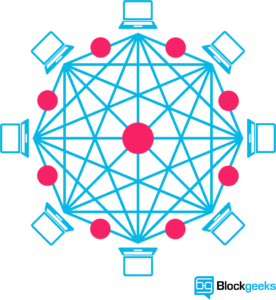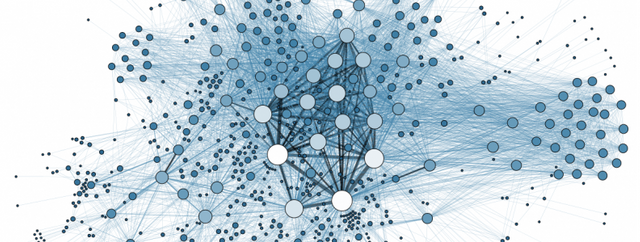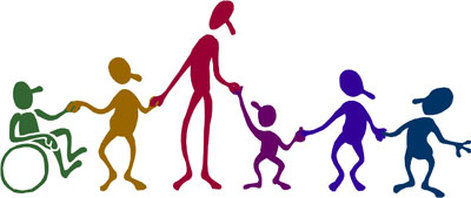Chapter 2: Seven-Design Principles of the Blockchain Economy
These 7 principles can serve as a guide to designing the next generation of high-performance and innovative companies, organizations, and institutions. if we design a system for integrity, power, value, privacy, security, rights, and inclusion, then we will be redesigning our economy and social institutions to be worthy of trust:
1. Network integrity
"participants can exchange value directly with the expectation that the other will act with integrity"
"on the bitcoin blockchain, the network time-stamps the first transaction where the owner spends a particular coin and rejects subsequent spends of the coin, thus eliminating a double spend problem"
"each block must refer to the preceding block to be valid"
"aimed to eliminate the ambiguity and conflicting interpretations of what happened, let the code speak for it self".
"The puzzle is mathematically set up to make it impossible to find a shortcut to solve it, that's why when the rest of network sees the answer, everyone trusts that a lot of work went into producing it. [Proof-of-Work]"
"for the first-time ever, we have a platform that ensures trusts in transactions and much recorded information no mater how the other party acts"
2. Distributed Power
"the system distributes power across a peer-to-peer network with no single point of control. no single party can shut the system down"
"If over half the network attempts to overwhelm the whole, everyone will see whats happening"
"the energy costs of overpowering the bitcoin blockchain would outweigh the financial benefits"
"it's a fully distributed across a volunteer network like BitTorrent, a shared database of intellectual property that resides on tens of thousands of computers worldwide"
"each bitcoin contains direct links to its genesis block and all subsequent transactions"
"Minting, a term whichever miner solved the puzzle and submitted proof-of-work first could receive a number of new bitcoins"
3. Value as Incentive
"Incentive structures for most of the top executives and many of the lending officers of these banks were designed to encourage short-sighted behavior and excessive risk-taking"
"Large dot-coms dangled free services in retail, search, and social media, in exchange for user data"
"Satoshi expected participants to act in their own self-interests, he understood game theory. he knew that networks without gatekeepers have been vulnerable to Sybil attacks, where nodes forge multiple identities, dilute rights, and depreciate the value of reputation"
"no matter how selfishly people acted, their actions would benefit the system overall and accrue to their reputations, however they chose to identify themselves"
"The resource requirements of the consensus mechanism, combined with bitcoins as reward, could compel participation to do the right thing, making them trustworthy in the sense that they were predictable"
"all money mankind has ever used has been insecure in one way or another, this insecurity has been manifested in a wide variety of ways, from counterfeiting to theft, but the most pernicious of which has been inflation".
"Supply 21 million cap issued in bitcoin is to prevent arbitrary inflation. No hyper inflation or currency caused by incompetent or corrupt bureaucracies."
4. Security
"safety measures are embedded in the network with no single point of failure"
"Public key infrastructure (PKI) is required for establishing a secure platform"
"PKI is an advanced form of asymmetric cryptography, where users get two keys that dont perform the same function: one if for encryption and one for decryption"
"Past schemed failed because they lacked incentive, and people never appreciated privacy as incentive enough to secure those systems"
5. Privacy
"people ought to have the right to decide what, when, how, and how much about their identities to share with anybody else"
"Satoshi installed no identity requirement for the network layer itself, meaning that no one had to provide a name, email address, or any other personal data in order to download and use the bitcoin software"
"Credit card, a very identity-centric model, thats why millions of peoples addresses and phone numbers are stolen every time a database gets breached"
"There are no honeypots of personal data on the blockchain. user identities are pseudonymous, this means what you have to do a considerable amount of triangulating of data to figure out who or what owns a particular public key"
"Anyone can own multiple public/private key sets, just as anyone can have multiple devices or access points to the internet and multiple email addresses under various pseudonyms"
"the virtual you could protect your personal information, giving away only the information required in any social or economic exchange work under your command and make sure you receive compensation for any of your data that has value to another party"
6. Rights Preserved
"As the Ledger of Everything, the block-chain can serve as a public registry through such tools as Proof-of -Existence (POE), a site that creates and registers cryptographic digests of deeds, titles, receipts, or licenses on the blockchain"
"Blockchain provides the means of proving ownership and preserving records without censorship"
"That intersection of legal descriptions and software is fundamental and the smart contracts are the first step towards in that direction, it also provides a means of owners of assets to pool their resources and create a corporation on the blockchain (DAO = Decentralized Autonomous Organization).
"Ownership is just a recognition by a government or an agency that you own something and they will defend your claims on that ownership"
"Who did we agree should have this set of decisions and activities at our company? the answer can be codified in a smart contract and placed on the blockchain so that the decisions, progress toward the goal, and incentives are all transparent and reached by consensus"
7. Inclusion
"the economy works best when it works for everyone. that means lowering the barriers to participation. it means creating platforms for distributed capitalism, not just a redistributed capitalism"
"Now anyone with a flip phone can participate in the economy, or in a market, as producer or consumer. no bank account required, no proof of citizenship required, no birth certificate required, no home address required, no stable local currency required to use the blockchain"
"when a corrupt or incompetent bureaucrats in failed states need funding to run the government, their central banks and treasuries simply print more currency and then profit from the difference between he cost of manufacturing and the face value of the currency"
"the potential of using the blockchain for property records in the emerging world, wheres that's huge issue related to poverty is significant"
"it means ending barriers to access because of where a person lives, whether a person spent a night in jail, or how a person voted, but also an end to glass ceilings, and good ol' boys' clubs of countless varieties"




For future viewers: price of bitcoin at the moment of posting is 9612.50USD